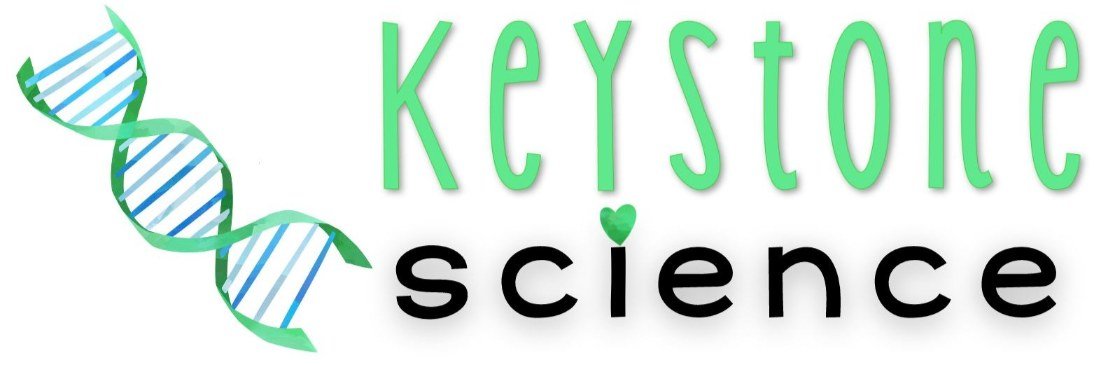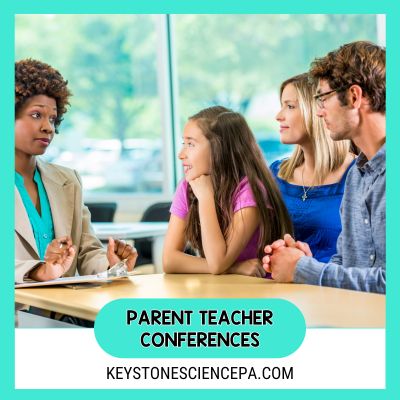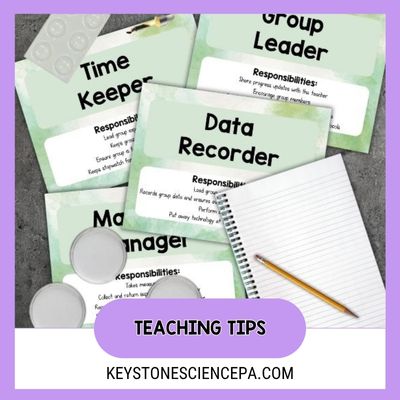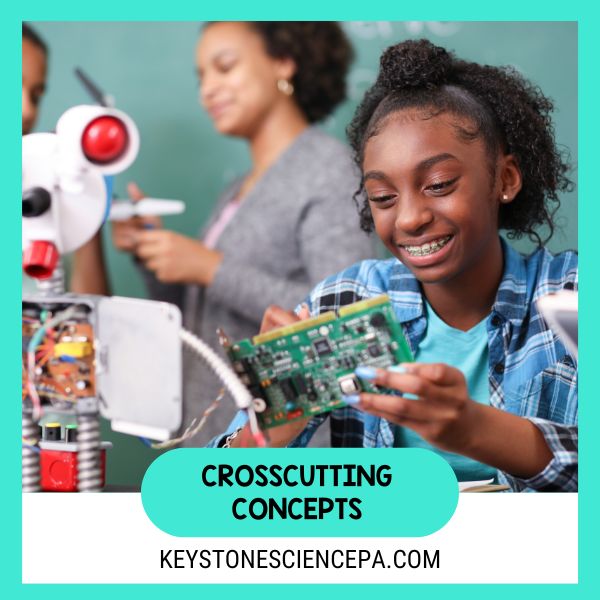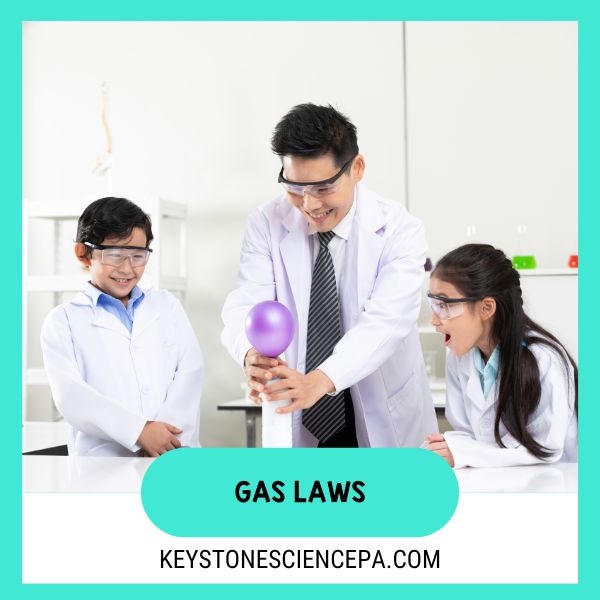Set yourself up for parent-teacher conference success with this post’s 3 strategies and helpful tips and tools. Don’t forget to download the freebie too!
Parent-teacher conferences can feel like a high-stakes lab experiment—some variables are known, others aren’t, and you’re tasked with explaining, clarifying, and problem-solving under tight time constraints. The challenge for high school science teachers is even greater as they navigate complex subject matter and diverse learning approaches.
However, with the right preparation and mindset, these conferences can transform into valuable opportunities to collaborate and communicate with the caring adults in your students’ lives.
You can make the most of these meetings by incorporating a few key strategies while setting your students up for success. Keep reading for practical tips to streamline your preparation and turn those “live lab experiments” into meaningful, productive conversations.
Why Parent-Teacher Conferences Matter
As report card season comes to a close, parent-teacher conferences provide a valuable opportunity to strengthen the partnership between educators and families. These meetings serve as a platform to celebrate achievements, address areas of concern, build trust, and foster a collaborative approach to supporting student success.
First, to ensure I see parents of struggling students or would benefit from a conference with me, I email them to let them know conferences are happening and invite them to schedule a conference.
In these emails, I also encourage students to attend alongside their parents. This approach helps build strong partnerships, ensuring everyone is involved in the conversation. By including the students, we shift from talking “about” them to actively collaborating with them to find solutions.
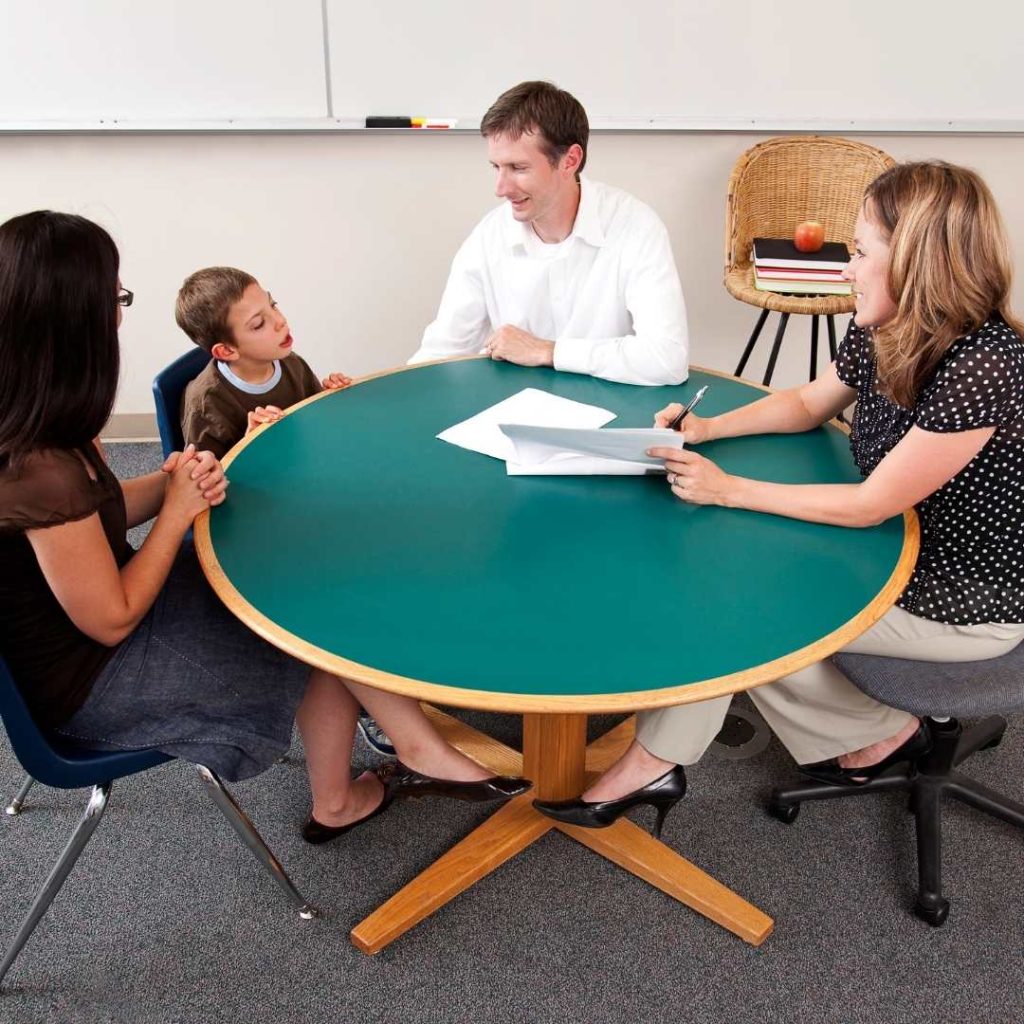
Strategy 1 – Be Prepared
You’ve likely heard the saying, “Failing to prepare is preparing to fail.” The same principle applies to parent-teacher conferences. Preparation is key, which means grading all student work, reviewing prior communications, and gathering details about each student in advance.
While this may seem daunting, a simple way to stay organized is by creating a one-page summary of each student’s progress. This summary should include grades, major assignments, completion rates, and some observational notes. This concise document will be an invaluable tool for keeping discussions focused and efficient.
Teacher Tip: Use a digital template or app to save time and ensure consistency in preparation for each student’s one-pager.
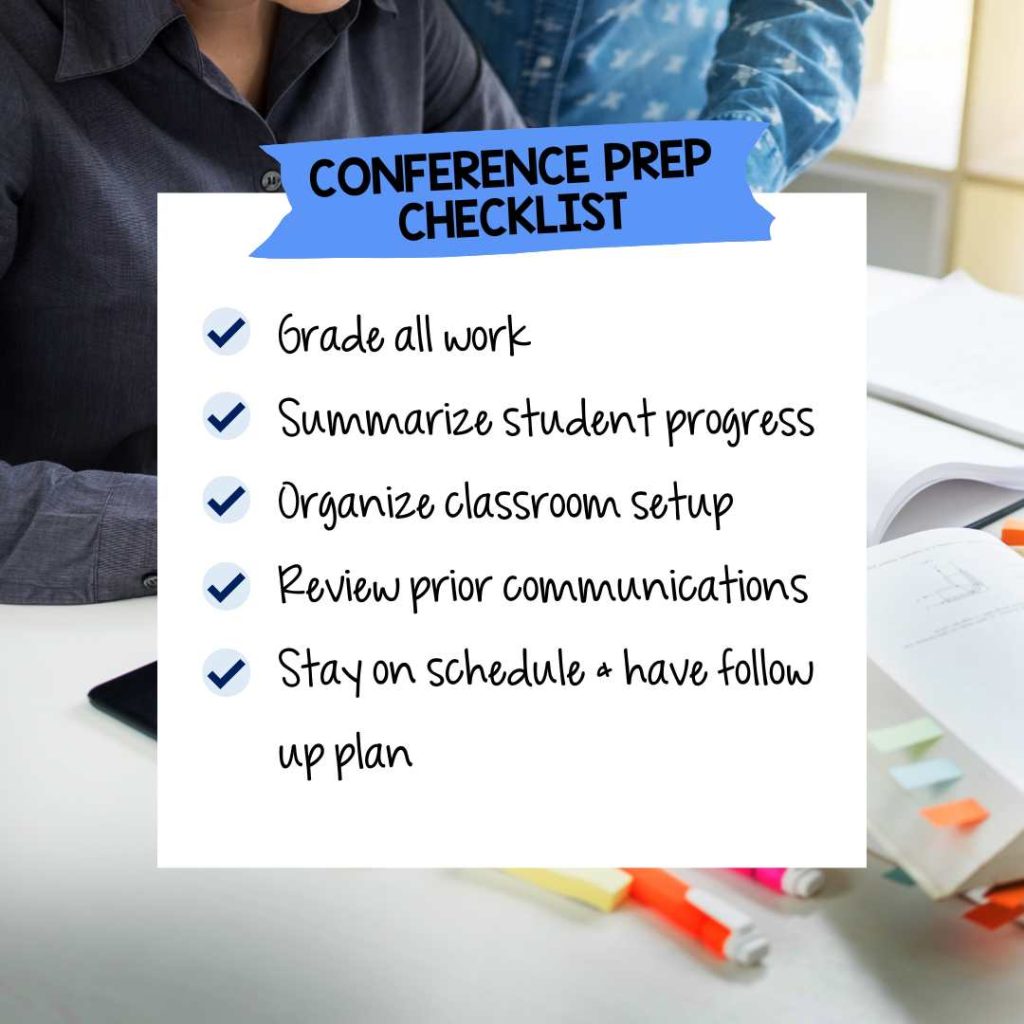
Strategy 2 – Start on a Positive Note
An effective strategy for parent-teacher conferences is to use the sandwich method when providing feedback. Just as you might on a student’s assignment, begin with a positive comment, follow with constructive feedback, and conclude with actionable steps for improvement.
Start the conversation with a genuine compliment about the student. This doesn’t have to be academic—it can highlight their character, work ethic, or class participation. For instance, the student might demonstrate resilience and dedication, even if their grades don’t fully reflect their efforts. Perhaps they take thoughtful risks by volunteering to answer questions or are the first to step up for class activities. They might show a positive attitude or noticeable progress in a particular area.
Opening with a compliment, even one unrelated to academic performance, helps set a positive tone. It can ease potential tensions and create a supportive environment for more productive and open dialogue.
Teacher Tip: Prepare at least one positive comment for each student in advance to avoid scrambling during the conference. Add this to the observational notes on your one-pager from the previous strategy.

Strategy 3 – Ask Questions
Parent-teacher conferences should be a meaningful two-way dialogue that fosters communication and collaboration. These meetings are a valuable opportunity to gain deeper insights into your students by engaging directly with their parents and, in some cases, the students themselves. By asking thoughtful and open-ended questions, you can better understand each student’s unique strengths, challenges, and learning needs while also building strong partnerships with families to support their academic and personal growth.
Consider asking:
- What does a typical school evening look like for your child?
- Is there a designated study area at home?
- How can we work together to improve attendance or focus?
I also like to explore whether students are discussing what they’re learning in class at home, as this can provide valuable insight into how engaged they are with the material. It’s always interesting to hear if parents are involved in these conversations, especially if they have any background, personal interest, or experiences related to the subjects we cover. These interactions not only help reinforce what’s being taught in the classroom but also create opportunities for families to bond over shared knowledge. Such conversations can foster stronger connections between students, parents, and educators, ultimately enhancing the overall learning experience for everyone involved.
Teacher Tip: Frame questions in a supportive, solution-focused way to encourage honest answers.
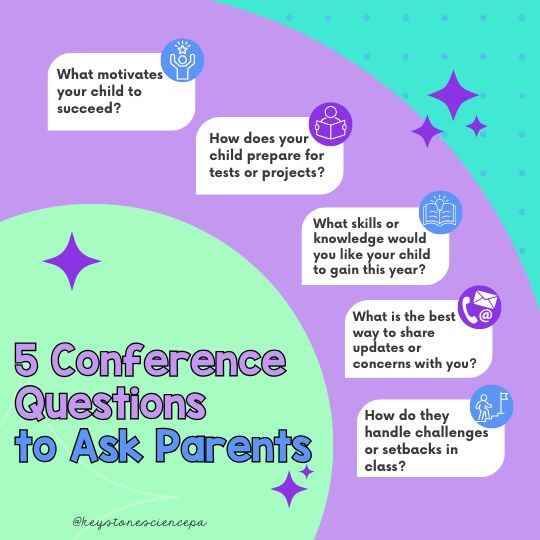
Tools to Make a Parent-Teacher Meeting Easier
Parent-teacher conferences can feel overwhelming, but I’ve found a few tools that make the process much smoother and more efficient. These resources not only save time but also provide a clear structure to help you prepare effectively.
One standout tool is a two-page freebie available exclusively to Keystone Science email subscribers. Delivered straight to your inbox, this freebie includes a template for creating a concise one-page summary (discussed earlier in this post) and a student self-evaluation sheet. The self-evaluation allows students to share their perspectives, ensuring their voice is an integral part of the conference.
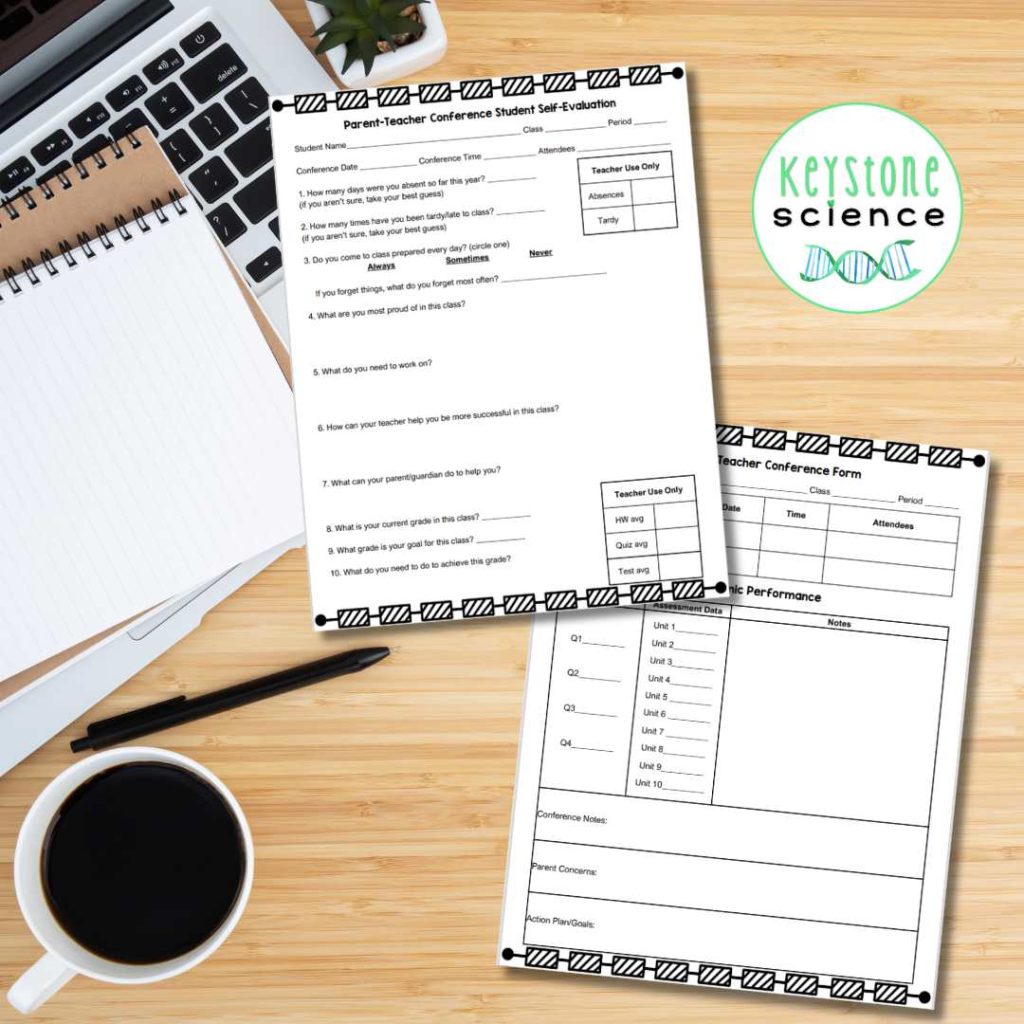
If you’d like to streamline your parent-teacher conference prep, you can grab your free copy here!
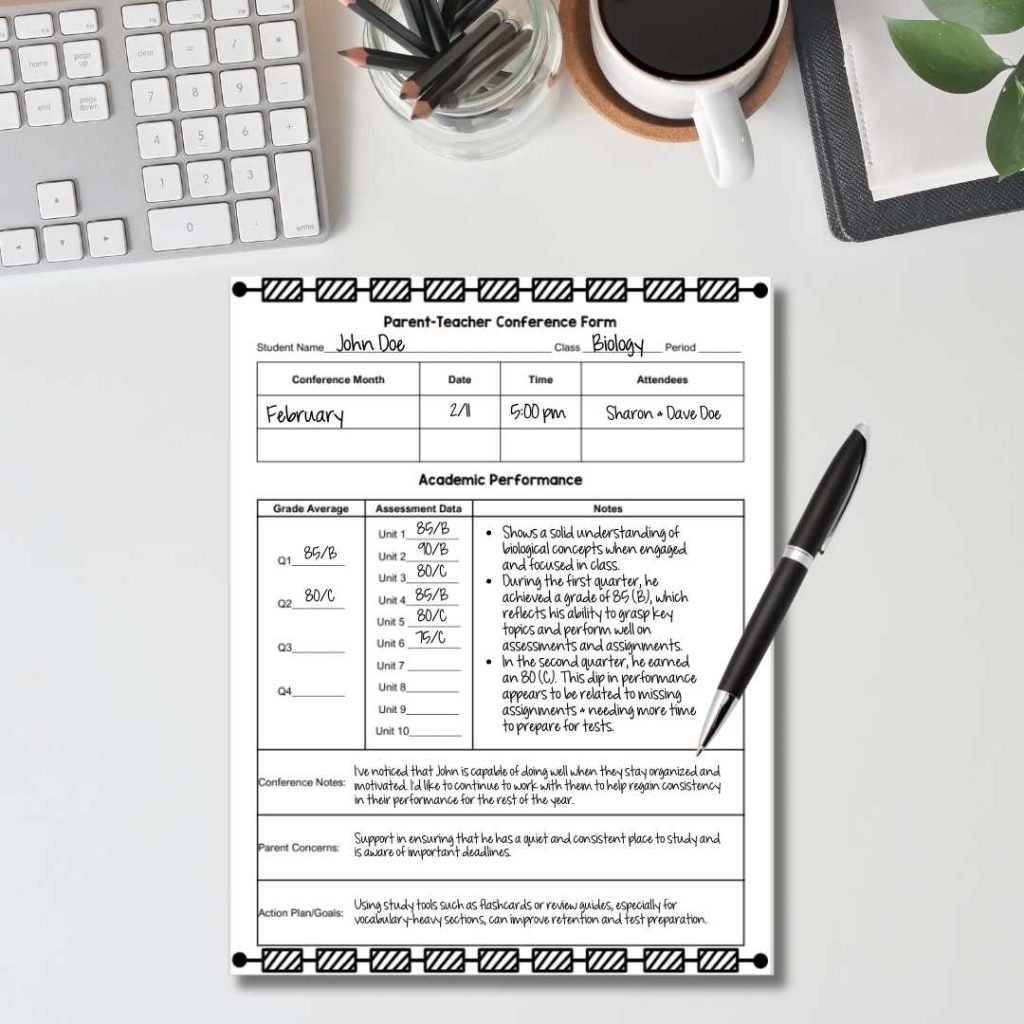
Engaging Parents Beyond the Conference
Although the busy days of parent-teacher conferences may be over, maintaining communication and collaboration with parents remains essential. Sharing updates on student progress, providing resources, or offering tips to support learning at home can help foster ongoing engagement. After these meetings, I review my notes to identify recurring themes or key topics discussed with multiple families. These insights often serve as the foundation for future email communications, ensuring parents stay informed and involved.
Teacher Tip: Draft an email template for post-conference follow-ups and save it in your drafts for future use. This will help you stay efficient and effortlessly maintain meaningful connections.
Conclusion
Parent-teacher conferences can be challenging, but having the right strategies makes all the difference. Start by streamlining your preparation process to save time, then focus on building a genuine rapport with your students’ families. This creates a two-way conversation centered on supporting each student’s success.
Remember, parent-teacher conferences are a collaborative effort! To make the process even easier, I’ve created a two-page prep guide designed to save you time and keep things stress-free.
Ready to simplify your conferences? Sign up for my email list today and grab your free preparation guide!
Let’s Connect!
💡Feel free to explore Keystone Science for ready-to-use high school biology & ecology NGSS aligned notes and activities.
💡Subscribe to my email list for weekly tips direct to your inbox.
💡Follow me on Instagram for daily tips, motivation, and facts you can use in your classroom!
🌟Share in the comments or email me directly 👉🏻 [email protected]
